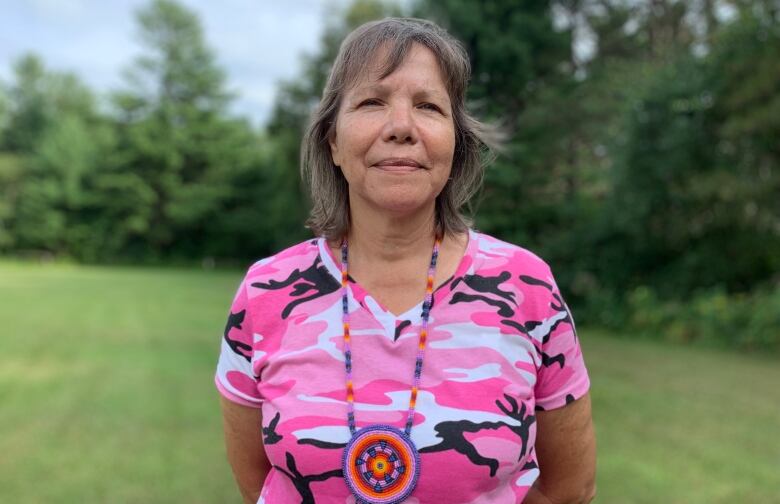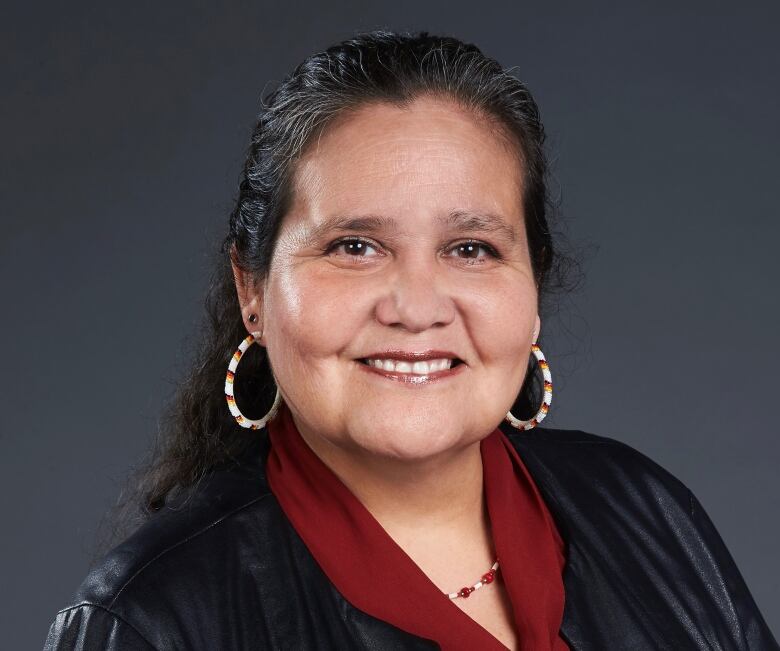Why Haudenosaunee women are central to advocating for land rights, from Oka to Caledonia
'As rights holders, we should be the ones consulted,' says activist Ellen Gabriel

According to the Haudenosaunee worldview, all issues regarding land fall on the responsibility of women.
It's why a group of women from Six Nations of the Grand River are opposing the use of injunctions against their community members who have been occupying a housing development outside Caledonia, Ont., since July 19.
It's been renamed 1492 Land Back Lane.
The group has faced court injunctions saying they must vacate the site, but the women said in a statement issued through the Yellowhead Institute on Tuesday that injunctions deny their inherent right to the land.
"Courts violate and criminalize the rights and responsibility of our women by preventing us from fulfilling our responsibilities to the land and our future generations in accordance with Haudenosaunee Law," the statement read.
The sentiments have been echoed by Haudenosaunee women who have faced similar experiences in protecting their traditional homelands from developments.
The Haudenosaunee, or Iroquois, Confederacy is made up of the Kanien'keh:ka (Mohawk), Seneca, Onondaga, Oneida, Cayuga and Tuscarora nations. Women hold title to the land under the Kaianera'k:wa (Great Law of Peace), their oral constitution.
"The land is who we are," said Ellen Gabriel, a Kanien'keh:ka artist and activist from Kanesatake, northwest of Montreal.
"Women are the ones protecting the land, and the men protect the women."

Gabriel is best known as a spokesperson during what became known as the 1990 Oka Crisis, a 78-day siege that was sparked over the expansion of a golf club and condo project on disputed land. Thirty years later, she continues to advocate and raise awareness of land rights in the community.
Gabriel said she sees parallels between the issues in Kanesatake, Six Nations, as well asWet'suwet'enterritory in B.C. There, hereditary chiefs'opposition to theCoastal GasLink project, when elected band councils had signed deals with the company,sparked solidarity protests across the country in February.
"As rights holders, we should be the ones consulted," said Gabriel.
"With Six Nations, with Wet'suwet'en, with [Kanesatake], it's the same thing. We're not informed. There's backdoor dealings that the people are not a part of. The system is not working for us. We need to push for a system that is accountable to the people."
In February 2006, community members in Six Nations opposed a residential development in Caledonia, Ont., called the Douglas Creek Estates that sparked a two-year standoff. Today, it's called Kanonhstaton.
Janie Jamieson was the spokesperson there, and said it's been frustrating seeing similar events unfold 14 years later.
"Players change in the political scene, but the history remains the same," she said.
"For these clash points to stop happening, there's a lot of education that needs to start happening."
Jamieson said younger generations in Six Nations are taught the history through oral tradition. She described it as "passing the torch" to the next generation.
"That just symbolizes that ongoing generational struggle we have as Onkwehonwe people, and quite often that gets initiated by the women," said Jamieson.

The housing developments being occupied today and in 2006fall under a large swath of land granted to Six Nationsin a 1784 decree called the Haldimand Proclamation,as compensation for aiding the British duringthe American Revolution.It spans six miles (about 10 kilometres) on either side of the Grand River from its mouth to its source.Today the community is a fraction of that size.
To seek compensation and accountability of what happened to the land, Six Nations of the Grand River filed 29 claims under Canada's Specific Claims Policy. Only one has been settled to date, and none of the underlying Aboriginal title issues have been addressed.
"We're going to keep spinning wheels until that's resolved," said Beverly Jacobs, a Kanien'keh:ka lawyer from Six Nations of the Grand River, and an associate dean of law at the University of Windsor.
Like Jamieson, Jacobs was involved in the reclamation of Kanonhstaton. She said Haudenosaunee women were front and centre.
"As Haudenosaunee women, we have a direct relationship to the land to Mother Earth that's our responsibility," said Jacobs.
"The strength of leadership that's an inherent quality that we have as women to be decision makers."

She said that's what people at 1492 Land Back Lane are trying to uphold but that the biggest struggle is to educate those within the court system who are issuing injunctions about that history and worldview.
"That's where I think a shift would be made if a judge was aware of the history," said Jacobs.
It's why over the last few years, she's been educating her law students at the University of Windsor about it.
"They're going to come out with a different mind, with a different way of thinking about that relationship and being able to have that kind of support and awareness," she said.
"I think we'll make a change. I don't think we're going to see it immediately, but we're going to see it eventually."












_(720p).jpg)


 OFFICIAL HD MUSIC VIDEO.jpg)
.jpg)



























































































